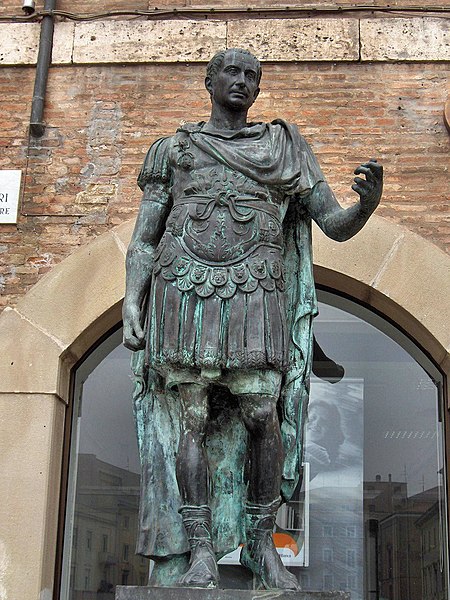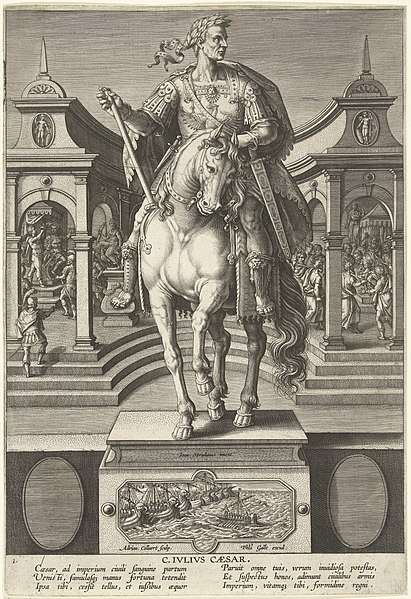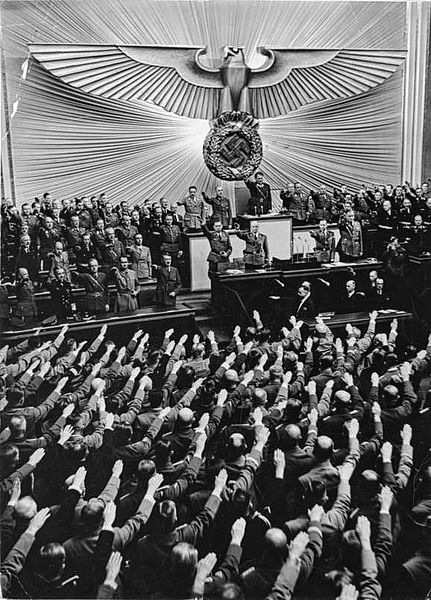In political science, the term Caesarism identifies and describes an authoritarian and autocratic ideology inspired by Julius Caesar, the dictator of Rome, from 49 BC to 44 BC.
A statue of Julius Caesar, in the city of Rimini, Italy.
Autocracy is a system of government in which absolute power is held by the ruler, known as an autocrat. It includes most forms of monarchy and dictatorship, while it is contrasted with democracy and feudalism. Various definitions of autocracy exist. They may restrict autocracy to cases where power is held by a single individual, or they may define autocracy in a way that includes a group of rulers who wield absolute power. The autocrat has total control over the exercise of civil liberties within the autocracy, choosing under what circumstances they may be exercised, if at all. Governments may also blend elements of autocracy and democracy, forming an anocracy. The concept of autocracy has been recognized in political philosophy since ancient times.
The coronation of Louis XVI of France (Gabriel François Doyen, 1775)
The Russian Revolution led to the replacement of the autocratic Russian Empire with the autocratic Soviet Union.
Julius Caesar (engraved c. 1587 – c. 1589)
Members of the Nazi Party salute Adolf Hitler in 1940





